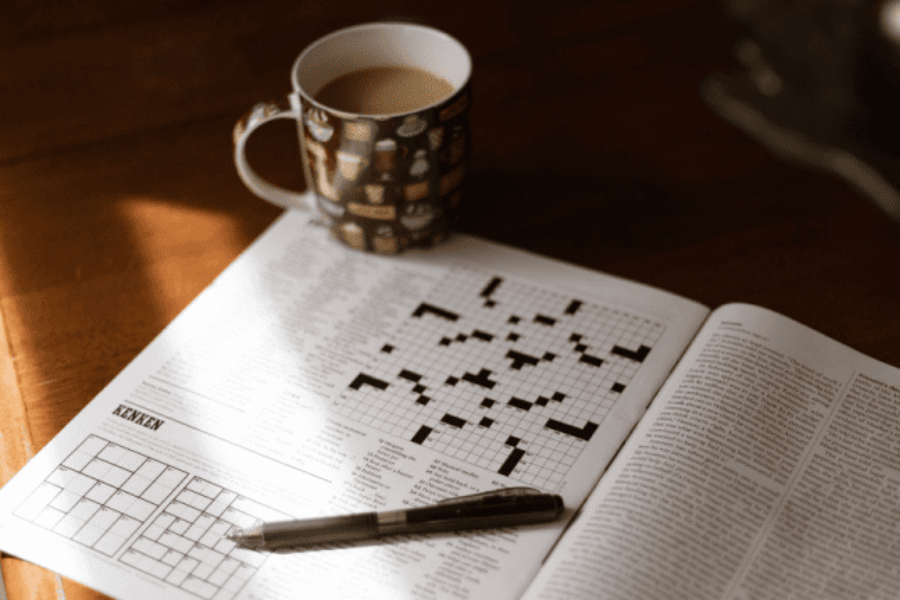Deciphering the Code: latches onto nyt crossword clue
The New York Times Crossword puzzle has captivated solvers for decades, evolving into a cherished daily ritual for many. Whether you’re a seasoned puzzler or a curious newcomer, mastering the art of solving clues like “hooks onto” requires a blend of sharp thinking and strategic approaches. In this article, we’ll explore the appeal of the latches onto nyt crossword clue, dive into effective strategies for tackling clues, and offer insights on improving your puzzle-solving skills.
The Appeal of the latches onto nyt crossword clue
The New York Times Crossword is more than just a puzzle; it’s a cultural institution. For many, solving this daily crossword is a beloved tradition that provides both a challenge and a sense of accomplishment. The thrill of cracking a tricky clue, the satisfaction of filling in the grid, and the pride of completing the puzzle all contribute to its widespread allure.
The difficulty of the puzzle varies throughout the week, with Monday’s offering the easiest challenges and Saturday’s presenting the most complex. Sunday puzzles are larger and often more intricate, requiring a more advanced solving strategy. This variety keeps solvers engaged and eager to tackle each new puzzle.
A Tradition of Excellence
Since its debut in 1942, thelatches onto nyt crossword clue has set a high standard in puzzle design. Will Shortz, the crossword editor since 1993, has played a crucial role in maintaining and enhancing this tradition. Under his guidance, the puzzle has evolved to include clever wordplay, contemporary cultural references, and innovative themes.
This commitment to quality and creativity is a major reason why so many people are drawn to the latches onto nyt crossword clue. The blend of intellectual challenge and cultural relevance ensures that solvers remain engaged and continually motivated to solve new puzzles.
Strategies for Solving the “Hooks Onto” latches onto nyt crossword clue
Although the “hooks onto” clue can be tricky, employing effective strategies can significantly improve your solving experience. Here are some tips to help you tackle challenging clues:
Start with the Easy Clues
Begin by solving the more straightforward clues. These often include shorter answers or common crossword entries. Filling in these answers first provides a solid foundation and boosts your confidence, making it easier to approach more difficult clues.
Pay Attention to Clue Wording
The phrasing of a clue often gives valuable hints about the answer. Be mindful of common crossword conventions, such as abbreviations, wordplay, and puns. For example, a clue ending with a question mark might indicate a play on words or a joke. Understanding these conventions can help you decode clues more effectively.
Leverage Cross-Referencing
Utilize intersecting answers to solve tricky clues. By working on interconnected clues, you can reveal letters and information that make it easier to tackle other parts of the puzzle. This method helps you make progress even when certain clues seem initially difficult.
Use Crossword Solving Tools
For particularly challenging puzzles, online tools and apps can be invaluable. While some solvers prefer to work without assistance, crossword dictionaries and solving apps can help you crack tough clues when you’re stuck. These tools not only provide answers but also expand your vocabulary and enhance your solving skills.
The Joy of Solving the “Hooks Onto” latches onto nyt crossword clue
There’s a unique satisfaction in cracking a difficult clue, especially when it seemed elusive at first. Engaging with the puzzle, thinking creatively, and seeing the grid come together is immensely rewarding.
Building a Community
The crossword-solving community is vibrant and supportive. Online forums, social media groups, and local meetups offer spaces for solvers to discuss puzzles, share tips, and celebrate successes. Connecting with others can enrich your solving experience, provide new insights, and help you solve clues more effectively.
Personal Growth and Cognitive Benefits
Solving crosswords isn’t just enjoyable—it’s also beneficial for mental health. Research suggests that engaging in puzzles like the latches onto nyt crossword clue can improve memory, critical thinking skills, and overall cognitive function. The mental exercise involved in solving clues contributes to keeping your mind sharp and enhances lifelong learning.
Conclusion
The “hooks onto” latches onto nyt crossword clue clue is part of a timeless and engaging puzzle that continues to challenge and entertain solvers worldwide. By understanding its appeal, applying effective strategies, and embracing the joy of solving, you can improve your ability to tackle even the most elusive clues with greater confidence and skill. Whether you prefer solving with pen and paper or using digital tools, dive into the world of the latches onto nyt crossword clue and discover how to master those subtle clues with newfound expertise. Happy puzzling!






